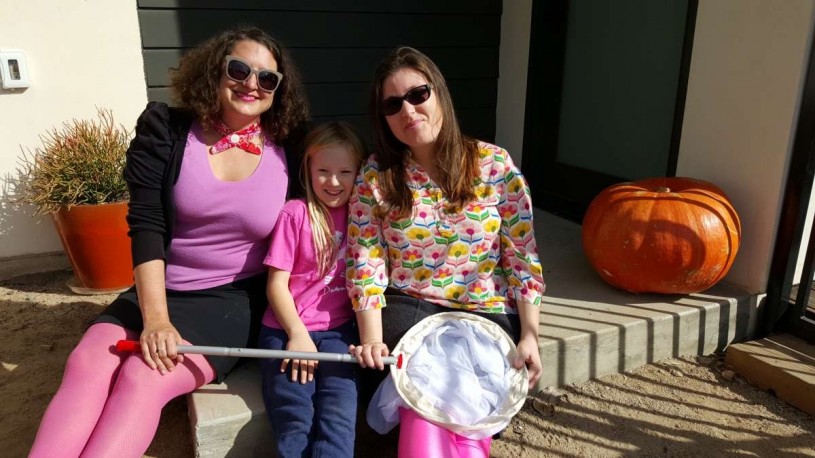Super Citizen Scientist Charlotte and the Hunt for the Elusive California Pink Glowworm
Charlotte made an incredible find: a California pink glowworm, Microphotus angustus!
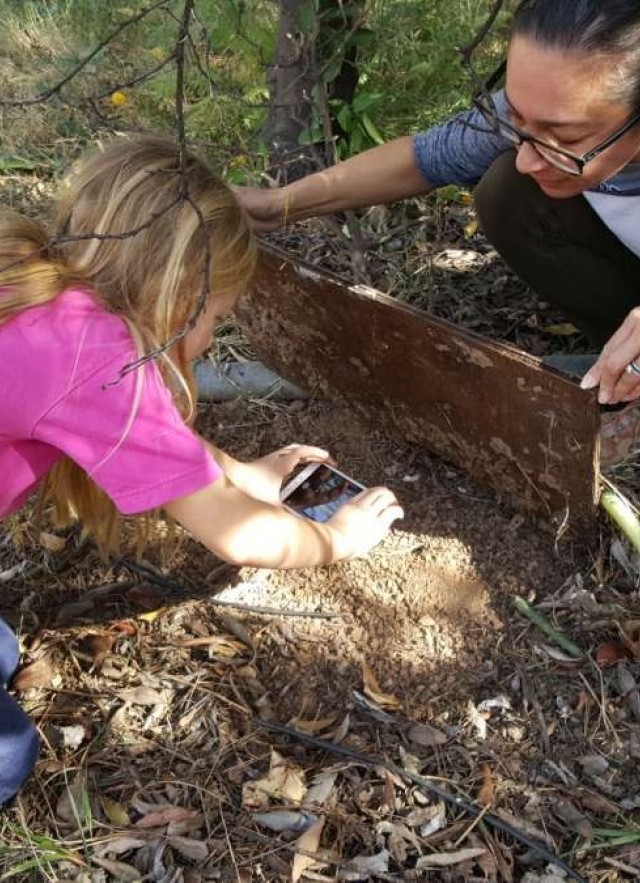
Published December 15, 2015
Charlotte McDonald, Age 8, is one of the NHM’s super community scientists. Recently, Charlotte made an incredible find: a California pink glowworm, Microphotus angustus!
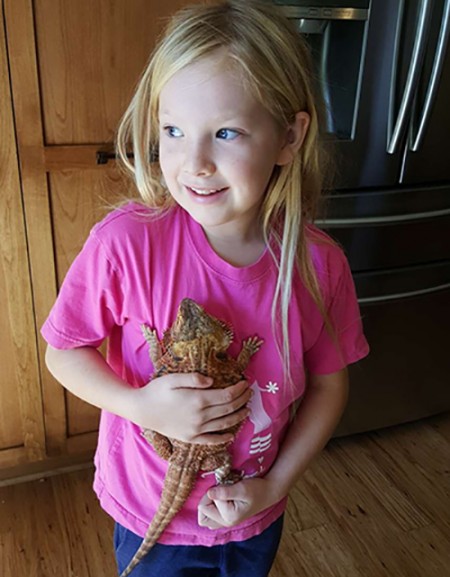
I’ve lived in Southern California my whole life and I have never seen one of these lovely creatures. In fact, I didn’t even know they existed until my college years, when my friend (and now BioSCAN colleague) Lisa Gonzalez gave me a copy of Insects of the Los Angeles Basin. In this magical book I learned that we have four local species of fireflies (beetles in the family Lampyridae) and one of them, Microphotus angustus, is pink in both the larval and adult female forms. This instantly became the insect I wanted to find. So when Charlotte found one during her recent SuperProject observation, I knew I had to join her on her next nature walk!
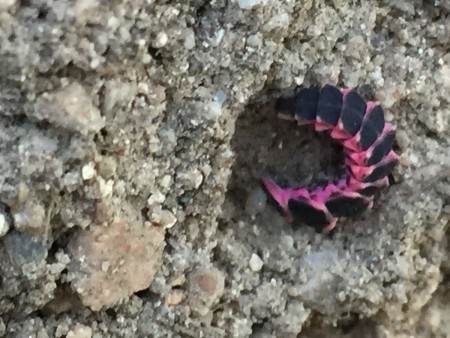
I invited NHM’s Community Science Manager, Lila Higgins, to accompany me to Altadena to meet with Charlotte to hunt for this elusive creature. Pink glowworms are uncommon and are most often seen by hikers at night in the late Spring and early Summer. They can be fairly easily spotted if they are out as they emit a continuous glow to attract mates (click here for a video of them glowing). Larval stages are black with pink margins (like the one Charlotte saw, above). Females eventually turn all pink, but look like larvae their entire lives (we call this larviform). Males metamorphize into your typical firefly beetle shape and emit a faint glow when disturbed (see an iNaturalist observation of adult males and females together here).
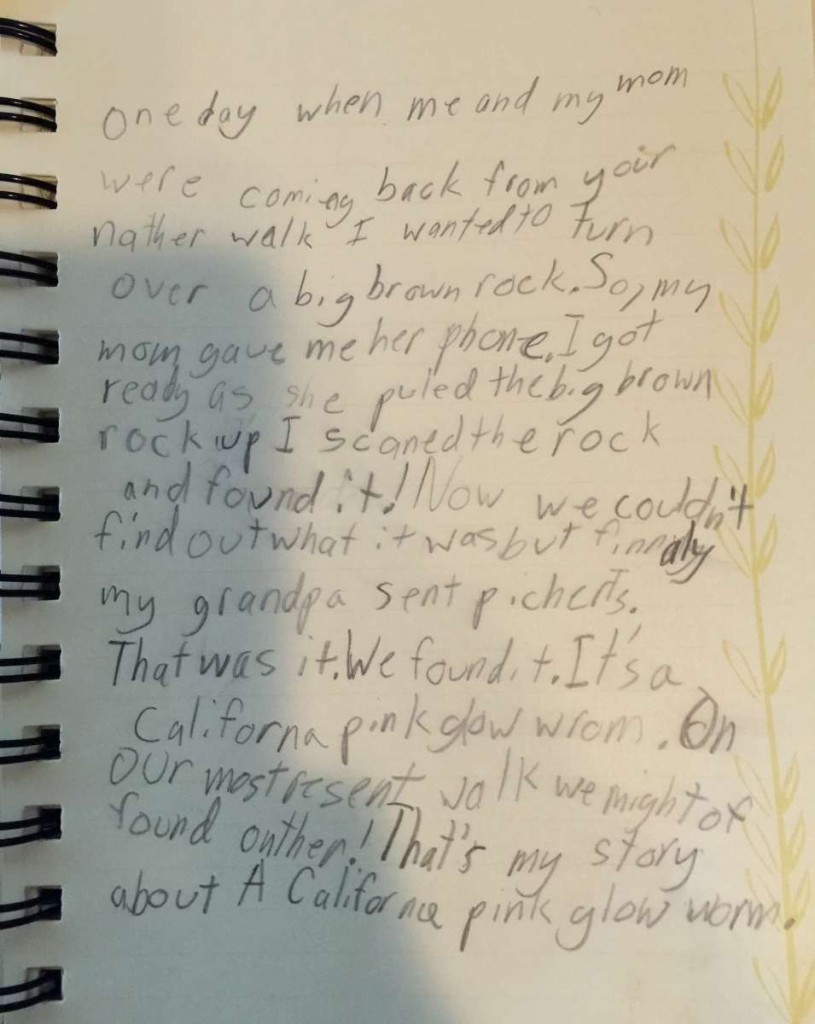
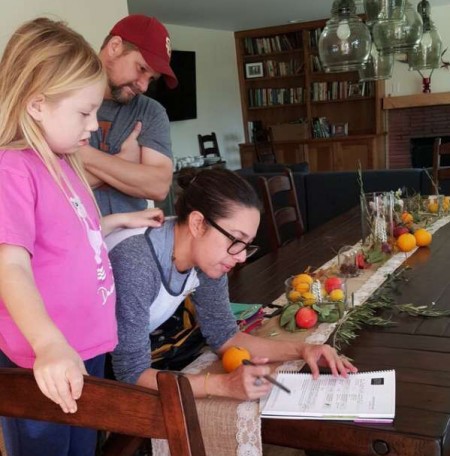
When we arrived at Charlotte’s house, we got to hear the story of her discovery firsthand over some pre-hunt coffee and cider (see her written account above). During the very first observation period for the SuperProject, Charlotte had asked her mom to lift a rock so she could see what was under it. When she saw the pink grub, she snapped a picture of it and showed her mom. Neither of them knew what it was, but luckily Charlotte’s grandfather was able to identify it for them. Lila and I were excited to see if we might be lucky enough to find another one with Charlotte’s help! Before we headed out, Charlotte and her parents carefully reviewed their project notebook and planned for that day's observations.
We then headed outside for our hunt! Charlotte left no stone (or log or board) unturned as she searched for observations. We saw lizards for RASCals, snails and a slug for SLIME, and some other great finds like a black field cricket and a Jerusalem cricket (below).
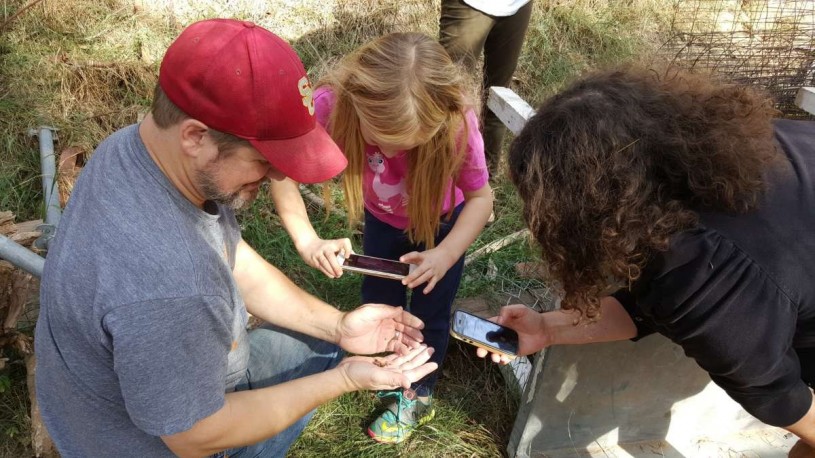
Charlotte showed exemplary technique in taking observations. When she saw a lizard she approached it slowly, taking a photo each step. When it finally spooked, she knew she had taken the closet photo possible. She also worked closely with her parents to be ready to snap photos as each rock, log, and board was overturned (sometimes things run away very quickly when uncovered). Near the end of our walk we were all excited to check underneath the rock where Charlotte had spotted her glowworm!
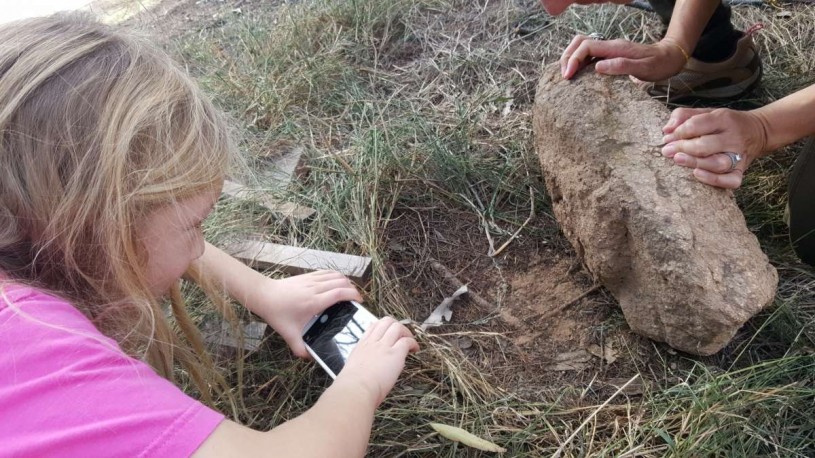
As the rest of us looked on, Charlotte got ready to take photos and Amelia carefully lifted the rock ... we all eagerly scanned underneath, but no pink glowworm. We searched nearby rocks and logs, but the elusive pink glowworm evaded us that day! Perhaps it is meant to remain a mystery to me.
